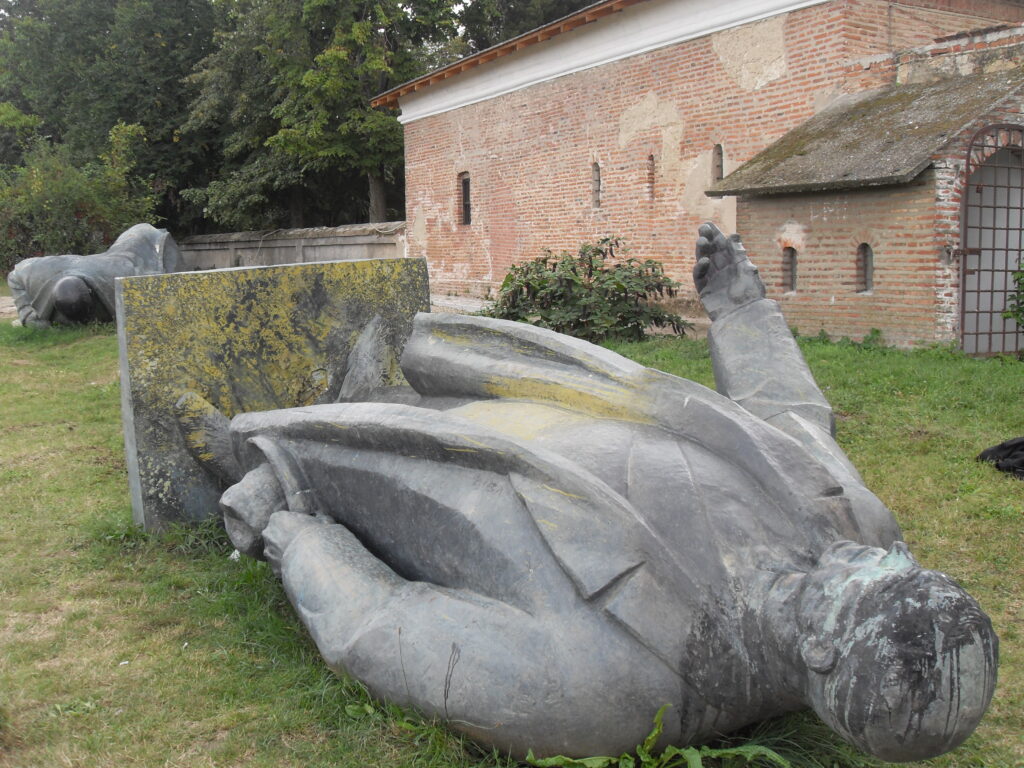
A lot has been said and written about statues. A great many people have got themselves worked up about this, whether it’s those who wish to take down tributes to people who no longer properly represent the country, state or city, or from those concerned about the re-writing of history.
By chance I happened to listen to an episode of the podcast 99% Invisible yesterday, whose subject was the taking down of communist, and largely Russian, symbols in Ukraine (of which, the dropping of the ‘the’ from its name was an important start). This episode is worth a listen as it highlights both the need to deal with uncomfortable symbols from the past, but also how the whole issue is not as easy as it may seem, even in a situation, like this where you might imagine it would be relatively straight-forward.
This is an issue that has had to be dealt with across the former communist nations of Europe over the last thirty years. In many cases it has been a simple case of returning names of towns, streets and squares to their pre-communist names – nobody wants to live on a Red Army Street anymore, unsurprisingly. However, what of the communist art that is displayed on buildings is actually attractive? Or what if the citizens actually like the communist name, and the development the communist regime brought to their town or village?
This episode handles the issues intelligently and with sensitivity. While it doesn’t provide a precise answer for what to do in the USA and the UK, the one clear lesson is involving people in the process. In my opinion this starts with education. How many people in the UK know how the people who have streets named after them made their money or why they were deemed famous enough (or was it just rich enough) to have a statue? As a first step, why not investigate the reason your street is called what is? Is it someone to be proud or ashamed of? Is it someone worth knowing more about or seemingly quite random?
But before you do that, read the article and listen to the podcast mentioned in this article here, https://99percentinvisible.org/episode/the-falling-of-the-lenins/.
